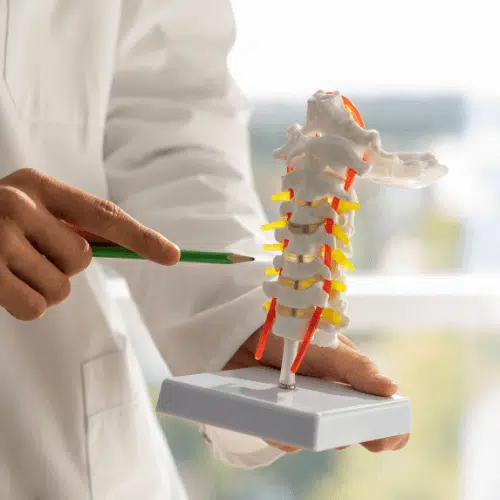An Unbiased View of Axis Spine And Orthopedics
An Unbiased View of Axis Spine And Orthopedics
Blog Article
Axis Spine And Orthopedics - An Overview
Table of ContentsThe smart Trick of Axis Spine And Orthopedics That Nobody is DiscussingNot known Facts About Axis Spine And OrthopedicsWhat Does Axis Spine And Orthopedics Mean?8 Simple Techniques For Axis Spine And Orthopedics
An orthopedic specialist is a physician who specializes in treating troubles of the bones, joints, and connective cells, and guaranteeing you maintain a healthy bone and joint system., we have very certified orthopedic specialists that are qualified of dealing with individuals of all ages. I got entailed in research study throughout my first year of clinical school, and I began making connections with orthopedic doctors early on.
Follow these standards carefully to avoid difficulties throughout the procedure. Go over the post-operative treatment plan with your surgeon. Comprehend what to anticipate during the healing duration and exactly how lengthy it will certainly take to resume daily activities. Schedule transport to and from the healthcare facility on the day of surgery.
The 10-Second Trick For Axis Spine And Orthopedics

Your medical professional will offer plenty of info pertaining to post-operative care, including how to stay clean and keep the surgical location tidy. Following these pointers can prepare you literally and emotionally for your orthopedic surgery. Keep in mind to keep a favorable outlook and count on your medical team's experience, contributing to a smoother healing procedure.

Nobody anticipates you to recognize anything, so don't try to remember a bunch of random facts. Or else, joint pain can actually mess up your life.
Common conditions treated by orthopedic surgeons are: Cracks and Bone Trauma: Broken bones and various other injuries from accidents or impacts. Bone Cancer: Growths in the bones. Orthopedic Injury: Severe injuries impacting informative post bones, joints, or soft tissues.
Orthopedic doctors perform a range of procedures to assist people with musculoskeletal concerns. Apart from these subspecialists, some orthopedic surgeons are generalists. Training might consist of conventional medical school (a physician of medicine degree, or MD)or osteopathic education (a doctor of osteopathy level, or DO) - axis spine.
The Main Principles Of Axis Spine And Orthopedics
Next, they finish an orthopedic residency. It's generally five years and provides hands-on learning in a clinical setting. Limited activity as a result of pain. Stiffness. First consultations commonly consist of: Reviewing your signs, case history and way of life. A physical examination, including relocating the affected joint in particular ways. Imaging researches, such as an X-ray. Explanation of your medical diagnosis.
Therapy suggestions. Some problems need added imaging, like a CT scan or MRI for even more in-depth views of the agonizing area. Your orthopedist will advise therapies to lower signs till you receive a diagnosis. Orthopedic surgeons specialize in nonsurgical and surgical methods. For particular types of orthopedic trauma or hereditary conditions, surgical treatment is frequently the first line of therapy. For the majority of various other conditions, orthopedists try nonsurgical therapies. It may take more than one sort of therapy to accomplish long-term alleviation. Picking the right is essential for effective medical end results and boosted person recovery. With a large range of alternatives readily available out there, it can be frustrating for both cosmetic surgeons and clients to make a notified decision. The top five aspects to think about when picking an orthopedic dental implant are medical compatibility, cost-effectiveness, considerations for modification surgical procedure, patient-specific variables, and the layout and technology of the dental implant. They can be found in different forms, dimensions, and products, each serving a particular function based on the patient's needs. Understanding the basics of orthopedic implants is critical prior to diving right into the decision-making process. One of the leading considerations when selecting an orthopedic implant is its compatibility with the surgery. Different implants are developed for numerous medical strategies and techniques. The orthopedic dental implant must be particularly designed to fit the patient's composition and guarantee stability throughout the healing procedure. Surgical compatibility involves factors such as dental implant size, form, and material. The success of orthopedic procedures relies greatly on the appropriate selection and positioning of implants that work with the person's composition and case history. By prioritizing individual security and health, orthopedic surgeons can accomplish successful outcomes and provide the finest of like their clients. Surgeons have to carefully take into consideration the biomechanical buildings of the implant and just how it will certainly integrate with the person's bone structure. This will add to far better surgical outcomes, reduced issues, and shorter recuperation time. When choosing implants for a person, it is necessary to consider a range of patient-specific variables that can influence the success and outcome of the procedure. These elements incorporate the patient's age, bone quality and quantity, dental health and wellness standing, medical history, way of life behaviors, and visual choices. For older clients with endangered bone density, much shorter implants or implanting procedures might be advantageous to supply the needed stability and assistance. 3. Is the size of the orthopedic dental implant an important factor to consider? Exactly how does it affect the procedure and the person's recuperation? Yes, the size of the implant is critical as it needs to match the individual's framework for correct fit and capability. 4. Can the person's age and way of living play a duty in picking the most suitable orthopedic implant? Absolutely. Exactly how does the price of an orthopedic dental implant variable right into the decision-making procedure, and exist means to stabilize high quality with cost? The expense of the implant is an important consideration, but it should not be the sole determining variable. Balancing quality with affordability involves considering various dental implant options 'lasting advantages and potential complications. Report this page